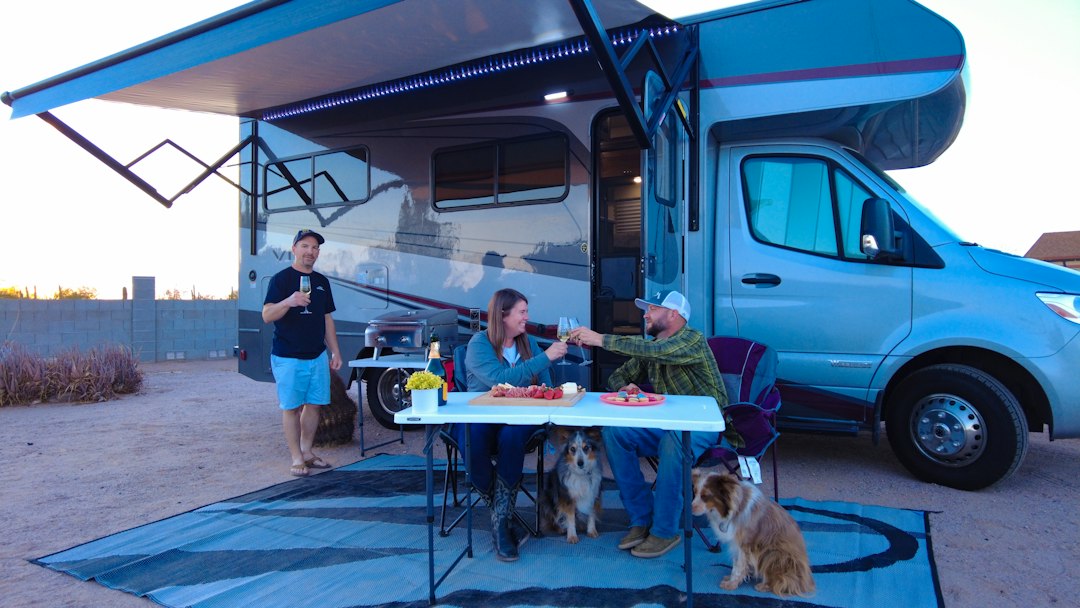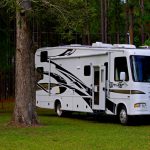Quick Answer: Fleetwood RV went out of business due to financial challenges caused by market dislocation, economic decline, and weakness in the RV and manufactured housing markets. Despite attempts to cut costs and restructure operations, Fleetwood Enterprises filed for Chapter 11 bankruptcy on March 9, 2009. The company sold its military housing division to Berkshire Hathaway’s Clayton Homes, motor homes division to American Industrial Partners, and manufactured housing division to Cavco Industries. A settlement was reached among creditors, resulting in the approval of a Plan by the Court on August 23, 2010. The remaining assets were entrusted to a liquidating trustee for monetization and distribution to creditors.
Are you curious about why Fleetwood RV, a once-prominent player in the RV industry, went out of business? In this article, we’ll delve into the history and circumstances that led to Fleetwood RV’s downfall. We’ll explore the financial challenges, market conditions, and strategic decisions that ultimately led to the company’s demise. So, grab a cup of coffee, sit back, and let’s dive into the fascinating story of Fleetwood RV’s rise and fall.
Table of Contents
- Quick Answer
- Quick Tips and Facts
- Background: The Rise of Fleetwood RV
- The Financial Challenges
- Strategic Decisions and Restructuring
- The Sale of Business Units
- Settlement and Emergence from Chapter 11
- FAQ
- Conclusion
- Recommended Links
- Reference Links
Quick Tips and Facts
- Fleetwood RV filed for Chapter 11 bankruptcy on March 9, 2009.
- The company faced financial challenges due to market dislocation, economic decline, and weakness in the RV and manufactured housing markets.
- Fleetwood RV sold its military housing division to Berkshire Hathaway’s Clayton Homes, motor homes division to American Industrial Partners, and manufactured housing division to Cavco Industries.
- A settlement was reached among creditors, resulting in the approval of a Plan by the Court on August 23, 2010.
- The remaining assets were entrusted to a liquidating trustee for monetization and distribution to creditors.
Background: The Rise of Fleetwood RV

Fleetwood RV, a division of Fleetwood Enterprises, was once a leading manufacturer of recreational vehicles in the United States. The company had a rich history dating back to 1950 when it was founded by John C. Crean. Over the years, Fleetwood RV established itself as a trusted brand known for its quality and innovation in the RV industry.
Fleetwood RV offered a wide range of motorhomes, travel trailers, and fifth wheels, catering to the diverse needs and preferences of RV enthusiasts. The company’s commitment to craftsmanship, attention to detail, and customer satisfaction earned it a loyal customer base.
For several decades, Fleetwood RV enjoyed success and growth, expanding its product lineup and manufacturing facilities across the country. The company became synonymous with the American dream of freedom and adventure on the open road.
The Financial Challenges
Despite its initial success, Fleetwood RV faced significant financial challenges in the early 2000s. The RV industry experienced market dislocation, economic decline, and weakness in the manufactured housing market, which impacted Fleetwood RV’s profitability and sustainability.
The company’s attempts to cut costs and restructure operations were not enough to overcome the financial hurdles it faced. Fleetwood RV found itself burdened with debt and struggling to generate sufficient revenue to cover its expenses.
Strategic Decisions and Restructuring
In an effort to address its financial challenges, Fleetwood RV made strategic decisions and implemented restructuring measures. The company aimed to streamline its operations, reduce costs, and focus on its core business.
Fleetwood RV explored various options, including divesting non-core assets and business units. These strategic decisions were intended to optimize the company’s resources and position it for long-term success.
The Sale of Business Units
As part of its restructuring efforts, Fleetwood RV sold several of its business units to other companies. These divestitures allowed Fleetwood RV to generate much-needed cash and focus on its core RV manufacturing business.
The company sold its military housing division to Berkshire Hathaway’s Clayton Homes, a leading provider of manufactured and modular homes. This transaction enabled Fleetwood RV to exit the military housing market and concentrate on its recreational vehicle business.
Fleetwood RV also sold its motor homes division to American Industrial Partners, a private equity firm specializing in industrial businesses. This sale allowed Fleetwood RV to divest itself of its motorhome manufacturing operations and further streamline its business.
Additionally, Fleetwood RV sold its manufactured housing division to Cavco Industries, a prominent manufacturer of factory-built homes. This transaction allowed Fleetwood RV to exit the manufactured housing market and focus exclusively on the RV industry.
Settlement and Emergence from Chapter 11
To address its financial obligations and facilitate its emergence from Chapter 11 bankruptcy, Fleetwood RV reached a settlement with its creditors. This settlement involved negotiations and compromises to ensure a fair distribution of assets and liabilities.
On August 23, 2010, the Court approved a Plan that outlined the terms of the settlement and provided a roadmap for Fleetwood RV’s emergence from Chapter 11. The remaining assets of the company were entrusted to a liquidating trustee, who was responsible for monetizing those assets and distributing the proceeds to creditors.
FAQ

Are Fleetwood RVs still made?
No, Fleetwood RVs are no longer being manufactured. Following its bankruptcy and the sale of its business units, Fleetwood RV ceased its operations in the RV industry.
When did Fleetwood RV go out of business?
Fleetwood RV filed for Chapter 11 bankruptcy on March 9, 2009. The company’s financial challenges and market conditions led to its decision to cease operations in the RV industry.
Who bought Fleetwood?
Fleetwood RV sold its business units to various companies. The military housing division was sold to Berkshire Hathaway’s Clayton Homes, the motor homes division was sold to American Industrial Partners, and the manufactured housing division was sold to Cavco Industries.
Is a Fleetwood RV a good RV?
Fleetwood RVs were known for their quality and innovation in the RV industry. However, since the company is no longer in business, it is not possible to purchase a new Fleetwood RV. If you are considering purchasing a used Fleetwood RV, it is important to thoroughly inspect the vehicle and consider factors such as maintenance history and overall condition.
Read more about “What RV Manufacturer Has the Most Complaints? …”
Conclusion

In conclusion, Fleetwood RV’s journey from success to bankruptcy is a cautionary tale of the challenges faced by companies in the RV industry. Despite its rich history and reputation for quality, Fleetwood RV was unable to overcome the financial hurdles caused by market dislocation, economic decline, and weakness in the RV and manufactured housing markets.
The company’s strategic decisions, including the sale of its business units, were aimed at addressing its financial challenges and positioning it for long-term success. However, these measures were not enough to save Fleetwood RV from bankruptcy.
While Fleetwood RV is no longer in business, its legacy lives on in the hearts of RV enthusiasts who have fond memories of their Fleetwood RVs. If you’re in the market for an RV, we recommend exploring other reputable brands that continue to manufacture high-quality recreational vehicles.
Thank you for joining us on this journey through Fleetwood RV’s rise and fall. If you have any further questions or would like to explore other RV-related topics, feel free to browse our website for more informative articles.




